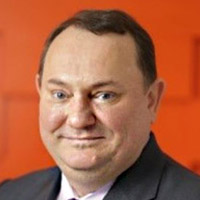On a global scale, money laundering has become mainstream, and today represents to 2 per cent to 5 per cent of global GDP, according to the United Nations Office on Drugs and Crime.
Criminal exploits in this area have become more widespread while maintaining a high level of sophistication. As the technology to detect and prevent money laundering, and the policies to prevent it, have become more advanced criminals are beginning to shift their sights to greener pastures.
In 2020, we expect to see more criminal activity directed toward areas such as trade finance, securities and life insurance. Financial institutions will be meeting this activity head-on by casting the net of monitoring and investigations wider and sharing intelligence with law enforcement, peers and even competitors in the name of preventing financial crime, as well as ferreting out the often-associated activities of bribery, corruption and human trafficking.
AML strategies have widespread support in the country. Over the past few years, Australia has been working to fight money laundering by implementing multiple strategies through AUSTRAC, including gathering and sharing financial intelligence, collaborating to investigate money laundering activities, developing and enforcing anti-money laundering and combatting the financing of terrorism (AML-CTF) regulation, and engaging with the industry.
In addition, the use of machine learning, artificial intelligence, and real-time transactional data analysis to uncover potential criminal activity will continue to grow substantially. These technologies can consume more data from more sources more quickly than human investigators, enabling faster analysis of a broader evidence base and, ultimately, more accurate detection of criminal activity.
Andrew Davies is vice-president of global market strategy, financial crime and risk management for Fiserv






